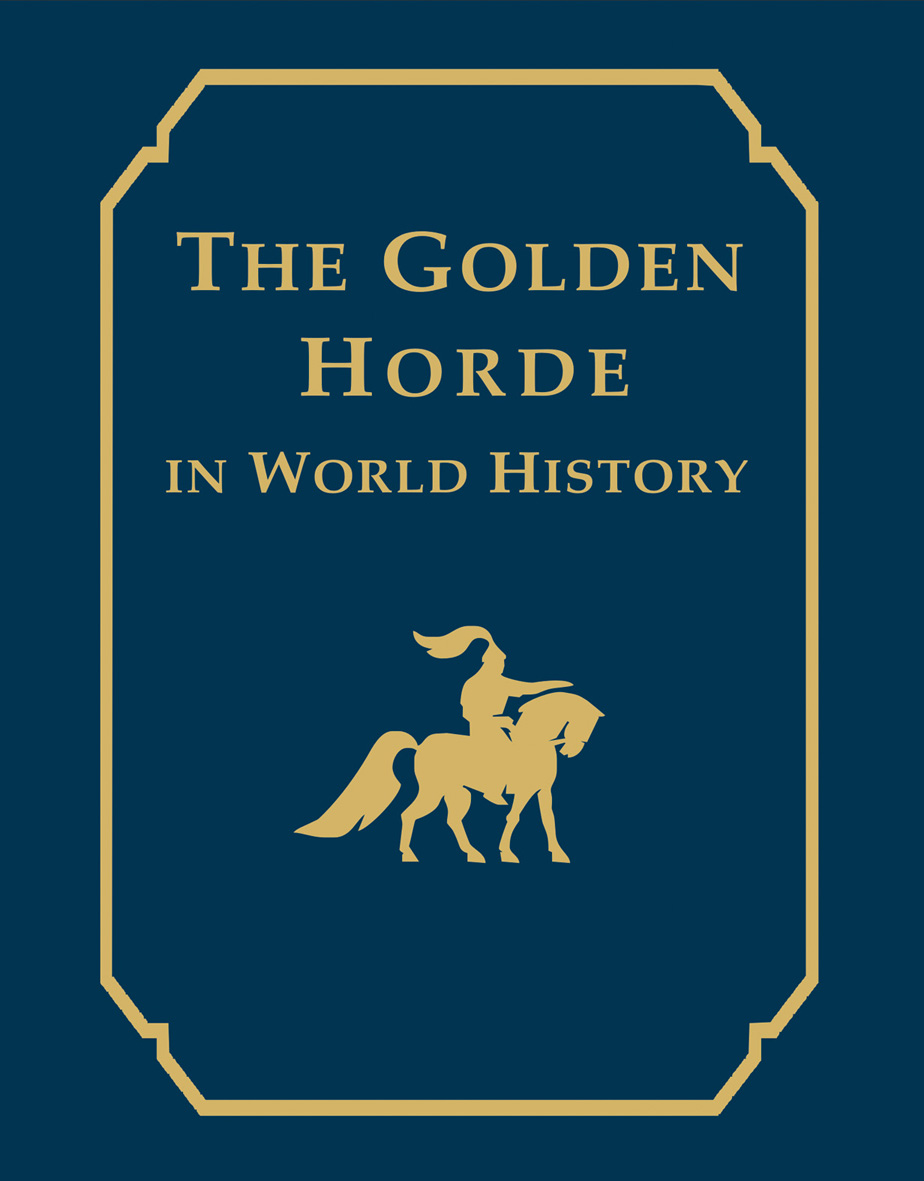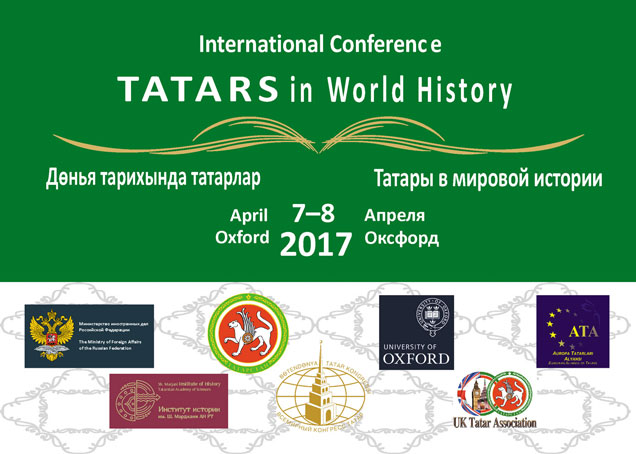
05.04.2017
The international conference "Tatars in World History" will be held in Oxford on April 7-8, 2017. The conference is organized by the Shigabutdin Marjani Institute of History of the Tatarstan Academy of Sciences in cooperation with the University of Oxford. The initiative was endorsed by the Ministry of Foreign Affairs of the Russian Federation and supported by the World Congress of Tatars, the European Alliance of Tatars and the Association of Tatars in Great Britain.
Alexander Yakovenko, Ambassador Extraordinary and Plenipotentiary to the United Kingdom of Great Britain and Northern Ireland, is expected to speak at the conference.
The English-language edition of "The Golden Horde in World History", the fundamental research published by the Marjani Institute of History in partnership with the University of Oxford,will be presented at the conference. The Russian-language edition of the book was published this January. The publication of the monograph aroused great interest in the academic community as well as in the public. All printed copies of the book were sold shortly after its official release.
The translation and publication of the English-language edition was TAIF PSC-funded. The project was coordinated by Ilnur Mirgaleev, Ph.D.
Raphael Khakimov, DPhil, member of the Tatarstan Academy of Sciences, Director of the Marjani Institute of History and managing editor of the monograph, will have his welcoming speech to the conference participants.
Professor Jonathan Shepard,a British historian on early medieval Russia, the Caucasus and Byzantium, will deliver his welcoming speech on the part of University of Oxford. Professor Shepard is recognized by the world academic community as the leading Byzantine studies and the history of Kievan Rus’ researcher. His field of research covers the history of the early Kievan period, Byzantine-Khazar and Russo-Kipchak relations.
In the foreword to the book, Raphael Khakimov says that during the Soviet period the research on the history of the Golden Horde and the epic "Idegey" were banned by Stalin. But, after the political events in the 90's, the old ideological approaches collapsed. "Tatars demanded an unbiased history for themselves, as textbooks and periodicals kept describing them as barbarians, presenting the Golden Horde as a source of savagery, humiliation to the Russians and a threat to Europe as a whole. A number of Russian politicianseven tried to promote the Battle of Kulikovo to the level of a Russian national holiday, which was promptly prevented by Tatarstanauthorities. It was under these circumstances that a large-scale research on the Golden Horde began," R. Khakimov said.
Vadim Trepavlov, DPhil, the research adviser of "The Golden Horde in World History" and the chief researcher of the Institute of Russian History of the Russian Academy of Sciences, distinguishes between a different approach of the authors of monograph to the study of the Golden Horde and the approaches taken in the traditional historiography: "This powerful state had a historical value of its own, and in and of itself should be considered an individual historical subject. By no means should it ever be viewed exclusively in terms of its impact on Rus".
"The Golden Horde is a part of the common heritage of mankind, as it created the very framework for the new sophisticated culture of the 13–14th centuries due to interactions between the nomadic and sedentary worlds," - Marie Favero-Doumenjou, DPhil, managing editor of the original edition, professor at Oxford University and the Sorbonne-Paris IV, said.
She notes further that although Western scholars did not admit the importance of this notion until recently, the Russian-speaking academic community has long been aware of the unique nature of the Golden Horde's legacy. It survived the dissolution of the Mongol Empire to grow stronger and exert influence on the rest of the world. "This world includes states that succeeded the Mongol Empire in China, Afghanistan, India, Persia, and Anatolia, as well as Byzantium, Rus', Europe and the Middle East. Extensive contact all the way from the Mediterranean to the Caspian Sea and even up to China suggests that the Juchi Khanate had close ties to the larger world. Thus, it would be a mistake to view the history of the Golden Horde as separate from more overarching formative global phenomena,"- M. Favero-Doumenjou concludes.
Professor of the Eotvos Lorand University (Budapest, Hungary) IstvanVásáry will present his report "Official document Practice in the Golden Horde and the successor states (Kazan and the early Crimean Khanates)". Professor Dariusz Kolodzeychik (Institute of History of the Warsaw University and Institute of History of the Poland Academy of Sciences) will present his report on "The language of the official documents of the Crimean Khanate".
The forum will also see a meeting of the "Seven centuries of the history of Tatars in Poland" conference working group, the discussion of the research project "Memorial burials of the Tatar warriors of the First and Second World Wars in Europe" (moderated by Marat Gibatdinov, Ph.D); the meeting of the working group of the research project "Golden Horde and Europe" (moderated by Lyutsya Giniatullina, junior researcher); a discussion of the plan-prospectus of the collective monograph "History of the Tatars in Europe" (moderated by Bakhtiyar Izmailov, Ph.D.).
The program of the Tatarstan delegation's visit includes a meeting with representatives of the Tatar diaspora in London.
